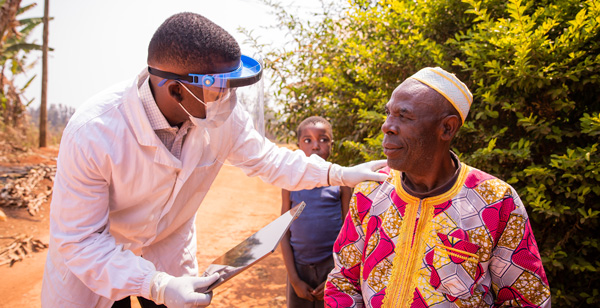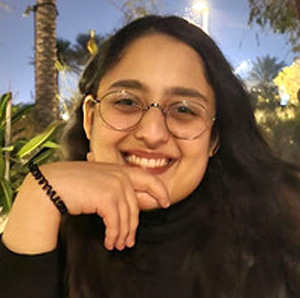How making evidence relevant to local contexts can help save lives
Authors: Mariam Salman1, Emmanuel Effa2, Nyanyiwe Mbeye3, Moriam Chibuzor2, Trudy D Leong4, Tamara Kredo4
1. Cochrane
2. Cochrane Nigeria, Institute of Tropical Diseases Research and Prevention, University of Calabar Teaching Hospital, Calabar, Nigeria
3. Evidence Informed Decision-making Centre, Department of Community and Environmental Health, School of Global and Public Health, Kamuzu University of Health Sciences, Blantyre, Malawi
4. Health System Research Unit, South African Medical Research Council, Cape Town, South Africa
Evidence holds immense potential, but its real value emerges only when it’s put into practice. In many countries, especially those with low- and middle-income economies, the issue isn’t the absence of research or global knowledge. Instead, the real challenge lies in adapting that evidence so it’s meaningful, practical and sustainable within the local context.
This World EBHC Day, we look at the Global Evidence and Local Adaptation (GELA) Project—a three-year project that aimed to strengthen the capacity of decision-makers in Malawi, Nigeria and South Africa to adapt WHO-led Clinical Practice Guidelines (CPGs) to local contexts, in partnership with WHO (Headquarters and AFRO), national ministries and civil society organisations such as the People’s Health Movement.

Building capacity
Despite progress in the health of newborns and children, ‘most sub-Saharan African countries have not met the Sustainable Development Goals for under-five mortality,’ says Tamara Kredo, the Principal Investigator and South Africa country lead for the GELA Project. To address these issues, policy makers and practitioners not only need evidence-based guidance on effective clinical care, but they also need guidance on how to implement this care efficiently within the context of their own health systems, considering inequity (in health and access to services) caused by poverty and other factors.
The GELA Project teamed up with health ministries in South Africa, Nigeria and Malawi with one clear goal: to make global research on poverty-related diseases truly useful on the ground. By strengthening the skills of both policymakers and researchers, the project helped turn international evidence into practical, locally tailored solutions for improving newborn and child health. What set GELA apart was its fresh approach; it began where it matters most—with national priorities shaped by the countries themselves.
A key part of the project was building long-term skills and support, not just offering once-off training. Over several years, GELA focused on mentorship and capacity-building so that ministries weren’t simply receiving evidence but were actively involved in shaping and producing it. At its core, the work was guided by strong ethical values, including fairness, inclusivity and transparency, all of which were woven into clear, documented and balanced decision-making processes.
Building bridges
We spoke to Nyanyiwe Mbeye, the country lead for Malawi, where she and her team focused on nutrition interventions for critically ill children. We asked Nyanyiwe what this looked like in practice. She stated that from the outset, the Ministry of Health in Malawi was very responsive and welcomed the GELA Project. ‘The project met their priorities for evidence-based decision making as they hoped that such decisions would help reduce child mortality. Even the Secretary of Health, who is the most senior person in the Ministry of Health, was supportive of the GELA Project.’
In South Africa, a guideline for family-centred, community-based home visits for families with preterm and low birthweight infants was adapted to meet local needs. Early on, a collaboration between the WHO AFRO region and the National Department of Health was forged, which showed promise. However, turnover in leadership slowed down progress and demonstrated the importance of embedded engagement across multiple levels of government in order to build diverse alliances to withstand institutional change.
In Nigeria, early engagement with the Ministry of Health and professional associations created momentum, even when the leadership of the relevant departments in the Ministry changed. ‘The impact is tangible,’ says Emmanuel Effa, the country lead for Nigeria. The priority area in Nigeria was feeding practices for low birthweight infants and hand hygiene among health workers. Professional associations such as the Paediatric Association of Nigeria have amplified the work, creating space for partners to have a seat at the table.
Back in South Africa, civil society partners like the People’s Health Movement helped shape priority setting and guideline development, ensuring that community voices were heard and consolidated. ‘This inclusivity strengthened accountability and trust,’ notes Tamara.
Bringing civil society into the process added another vital layer to the collaboration. It ensured that the policies and guidelines being developed were not only scientifically sound and clinically relevant but also grounded in the real needs and lived experiences of families and communities. This deeper level of participation helps bridge the gap between health systems and the people they serve, turning evidence into action that truly reflects local priorities and builds public confidence in the decisions being made.
Lasting impact
Although the GELA Project is winding down as it’s reached the three-year mark, this is not the end, but just the beginning.
In Malawi, the lasting impact can be seen through the way that it has shifted perspectives on how the Ministry of Health views evidence-informed decision-making and how they are planning to develop their own capacity to do so after the GELA Project. ‘I feel like this really shows that the Ministry understands the value of evidence-based decision making and is really willing to build their capacity to institutionalise it,’ says Nyanyiwe. She added that at the heart of this is ensuring that systematic reviews and clinical practice guideline training is provided to those who are making decisions, working with Cochrane to do so.
‘GELA has left an indelible footprint in Malawi and we need to make sure that we don’t lose momentum,’ states Nyanyiwe. To support the Ministry of Health in Malawi in institutionalising evidence-based decision-making, colleagues in South Africa are helping develop capacity by supporting training, highlighting the importance of South-to-South knowledge sharing.
Emmanuel Effa from Cochrane Nigeria spoke encouragingly about how ‘working hand-in-hand with policy makers and other relevant stakeholders to set priorities and develop guidelines … so that they could replicate the process even after the project ends’ was one of the major impacts of the GELA Project in Nigeria.
In South Africa, one of GELA’s greatest achievements was how it created a genuine partnership between policymakers, researchers and frontline professionals, including neonatologists, paediatricians and neonatal nurses. By working side by side, these groups built trust, shared expertise and developed a deeper understanding of each other’s perspectives. Policymakers gained insight into clinical realities and research evidence, while health professionals and researchers were able to influence how priorities were identified and addressed. Although this collaboration did not immediately lead to the development of new guidelines, it laid the foundations for stronger relationships and clearer communication. Crucially, these connections did not end when the project did. They created momentum for ongoing dialogue and continued joint work, helping ensure that future evidence-informed solutions can be co-developed and implemented more effectively.
Collaboration is key in knowledge-sharing
The GELA Project highlights that the future of evidence-informed policy or guidelines is rooted in collaboration. This World EBHC Day is a powerful reminder that sharing knowledge collaboratively is essential to building fair, sustainable health policies or guidelines. The real potential for progress lies in collective action - with governments, donors, researchers and global institutions joining forces to align their efforts and make the most of the knowledge and resources already available.
Looking ahead, the challenge and the opportunity is to keep building on this spirit of collaboration. By connecting evidence with experience, research with policy and global knowledge with local realities, we can create health systems that are more responsive, equitable and sustainable. Together, we have the instruments and the relationships to make real, lasting change—and now is the moment to use them!
References
Kredo T, Effa E, Mbeye N, et al. Evaluating the impact of the global evidence, local adaptation (GELA) project for enhancing evidence-informed guideline recommendations for newborn and young child health in three African countries: a mixed-methods protocol. Health Res Policy Sys 2024;22:114. https://doi.org/10.1186/s12961-024-01189-5
Kredo T, Durão S, Effa E, et al. Building sustainable capacity to adopt, adapt or develop child health guidelines, Malawi, Nigeria and South Africa. Bull World Health Organ. 2024;102(10):749-56. doi: 10.2471/BLT.24.291564. Epub 2024 Sep 2. PMID: 39318893; PMCID: PMC11418851.
Schmidt BM, Mabetha D, Chibuzor M, et al. Developing and planning country-specific integrated knowledge translation strategies: experiences from the GELA project in Malawi, Nigeria and South Africa. BMC Public Health 2024;24:1418. https://doi.org/10.1186/s12889-024-18934-8
To link to this article - DOI: https://doi.org/10.70253/JUXF5154
Funding: GELA was supported by the European and Developing Countries Clinical Trials Partnership (EDCTP) under the EDCTP2 programme (grant number RIA2020S -3303-GELA). EDCTP is a public-public partnership between countries in Europe and sub-Saharan Africa, supported by the European Union. The views and opinions of the authors expressed herein do not necessarily state or reflect those of EDCTP. The GELA partners include the South African Medical Research Council, Cochrane, Cochrane Africa, Cochrane Nigeria, Stellenbosch University, the University of Calabar Teaching Hospital, Kamuzu University of Health Sciences, the Norwegian University of Science and Technology, the Western Norway University of Applied Sciences and the Magic Evidence Ecosystem.
Disclaimer
The views expressed in this World EBHC Day Blog, as well as any errors or omissions, are the sole responsibility of the author and do not represent the views of the World EBHC Day Steering Committee, Official Partners or Sponsors; nor does it imply endorsement by the aforementioned parties.
